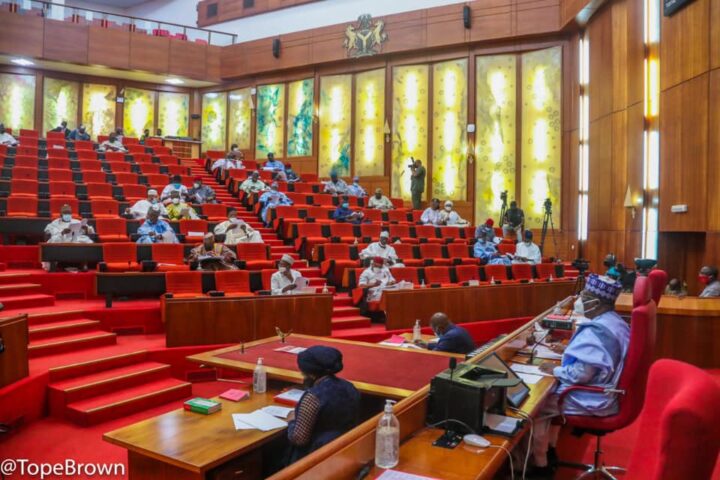ElectHER, a non-profit organisation, and Platform Capital, an investment firm, have hosted Joyce Banda, former president of the Republic of Malawi, in Lagos.
During the reception in Lagos, on Thursday, Banda spoke on the theme, “The Future Is Feminine: How Can African Women Position Themselves as Change Agents in Life, Business and Politics”.
The former Malawi president clarified the distinction between “the future is feminine” and “the future is female”. She said “the future is feminine” does not mean that the future belongs to women only.
“It is about eliminating all practices and systems that disadvantage women. It is not an infringement or disturbance to the world order, but rather it is about correcting what is fundamentally wrong with the current world order,” Banda said.
Advertisement
“It is about creating or having a new world order that is built on the principles of equality, fairness and inclusivity and, accordingly and effectively, putting an end to the world order that is built and based on gender prejudices, predispositions and constructions.”
Banda, however, referred to three critical changes to create a feminine future: a shift in mindset to ensure that women at all levels understand that eradicating poverty that affects them is in their own hands; political will at all levels of government across Africa to pass laws that encourage equal treatment for both men and women; and women economic empowerment and participation in leadership.
In her remarks, Ibijoke Faborode, the founder and chief executive officer of ElectHER, noted that countries that have seen the election and representation of women at the highest political offices have done so at the lowest point of their economies.
Advertisement
According to her, this signifies the undeniable importance of women to peace, security and socio-economic development.
Speaking at the event, Akintoye Akindele, chairman, Platform Capital Group, said, “Our women have woken up and become entrepreneurs in the proper world. By increasing capital access from three per cent to 10 per cent to female initiatives and businesses, we can create improved development outcomes in Africa.”
Adebola Williams, CEO of RED For Africa; Ngozi Ekeoma, CEO of NEPAL Oil and Gas; Prishina Satypal, CEO of Sustainability Truthing; and Helen Emore, CEO of Helen Food, engaged in a high-level panel discussion.
The session was moderated by Akindele and Faborode to further highlight the importance of increased women participation in government and business.
Advertisement
The event also had in attendance members of the recently inaugurated AGENDER35 Advisory Council: Adaora Onyechere, Japheth Omojuwa, Blessing Adesiyan, Ope Oriniowo, Adewumi Emoruwa and Azeezat Yishaw; representatives of diplomatics missions — Teshome Nkrumah, deputy high commission, Canadian mission in Nigeria, and Jannie T Lewis, official spokesperson of the US consulate.
Other high-network individuals in the event included John Obayuwana, managing director, Polo Luxury Group; Betty Irabor, publisher, Genevieve magazine; Ponmile Osibo, partner, Platform Capital; Hansatu Adegbite, executive director, WIMBIZ; Stephanie Busari, editor, CNN Africa; Joyce Daniel, Esan LGA chairmanship candidate in Edo state.
In her closing remark, Faborode led all guests to make a renewed public commitment to improving women’s participation in government, ensuring equality and representation of women in different walks of life, especially as Nigeria prepares for the next general election in 2023.
ElectHER is a party-agnostic non-governmental organisation committed to increasing representation of women in public life and politics, through behavioral change communications, community building, capacity development, tech innovation and increased access to social, human and financial capital.
Advertisement
Add a comment






